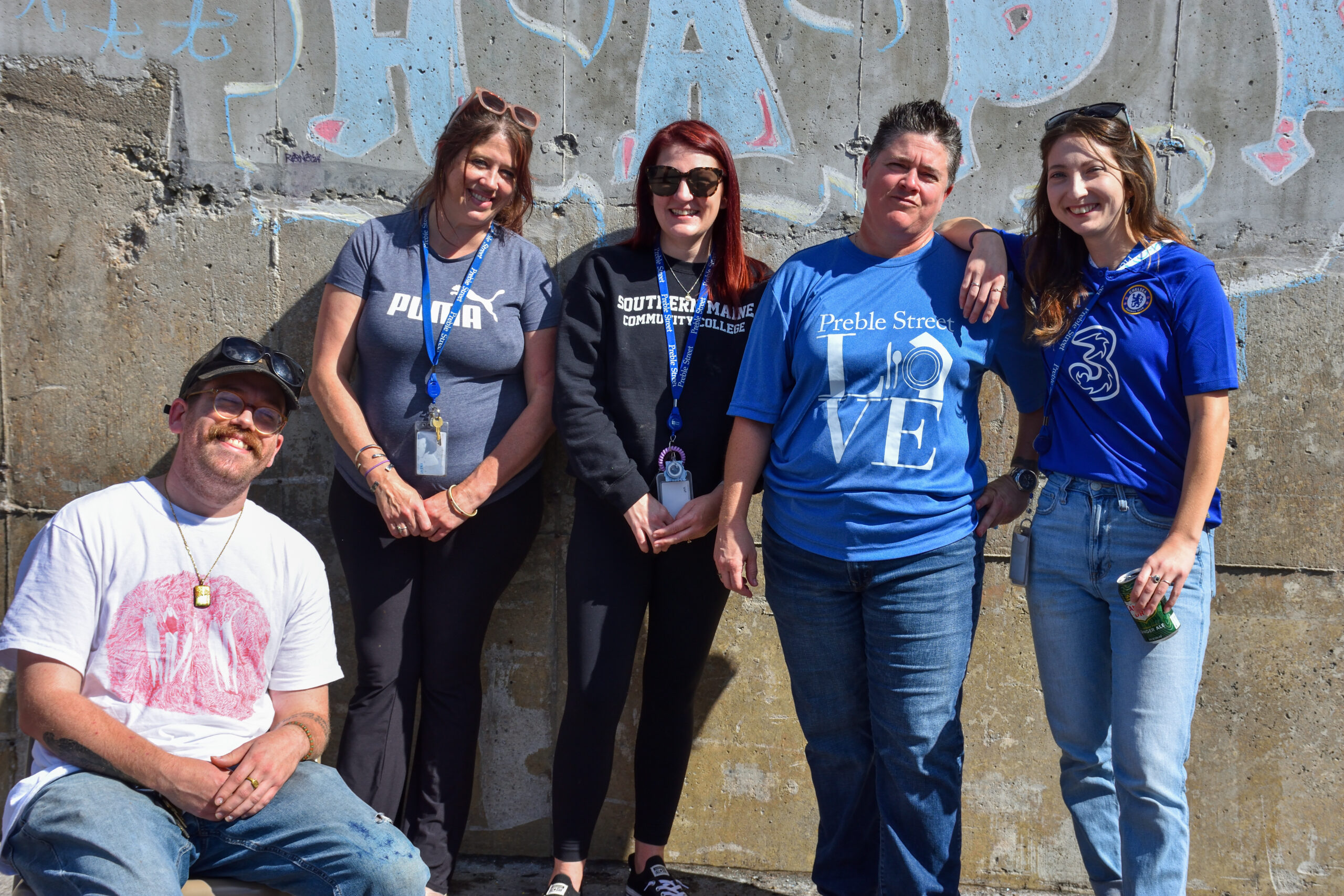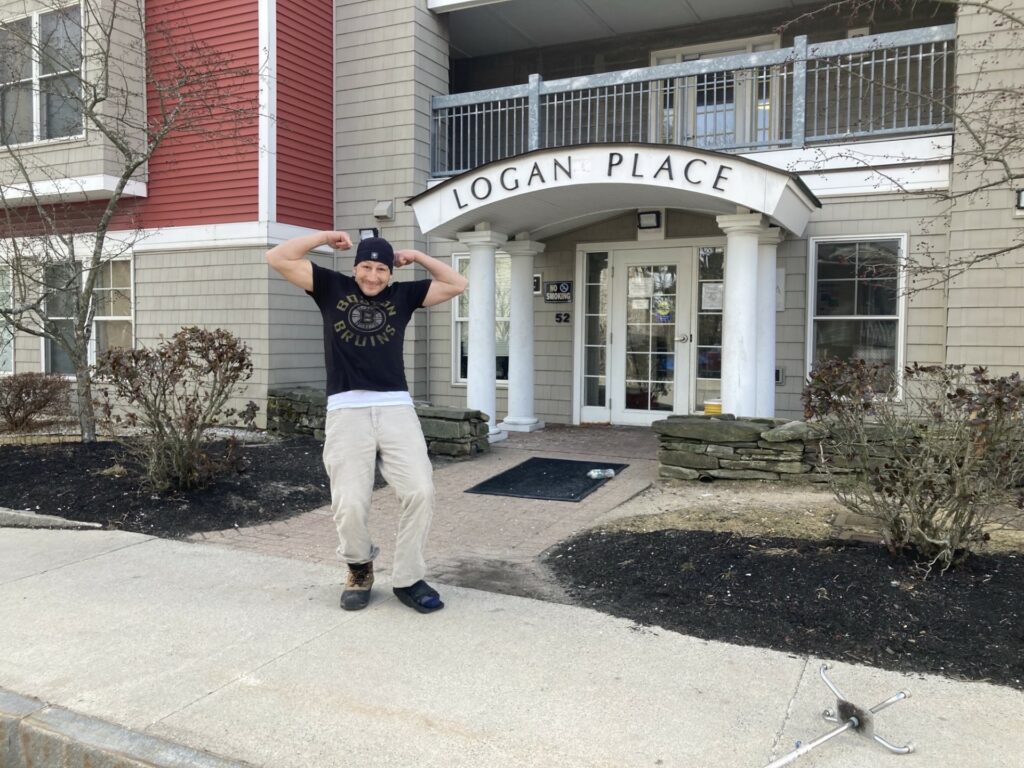
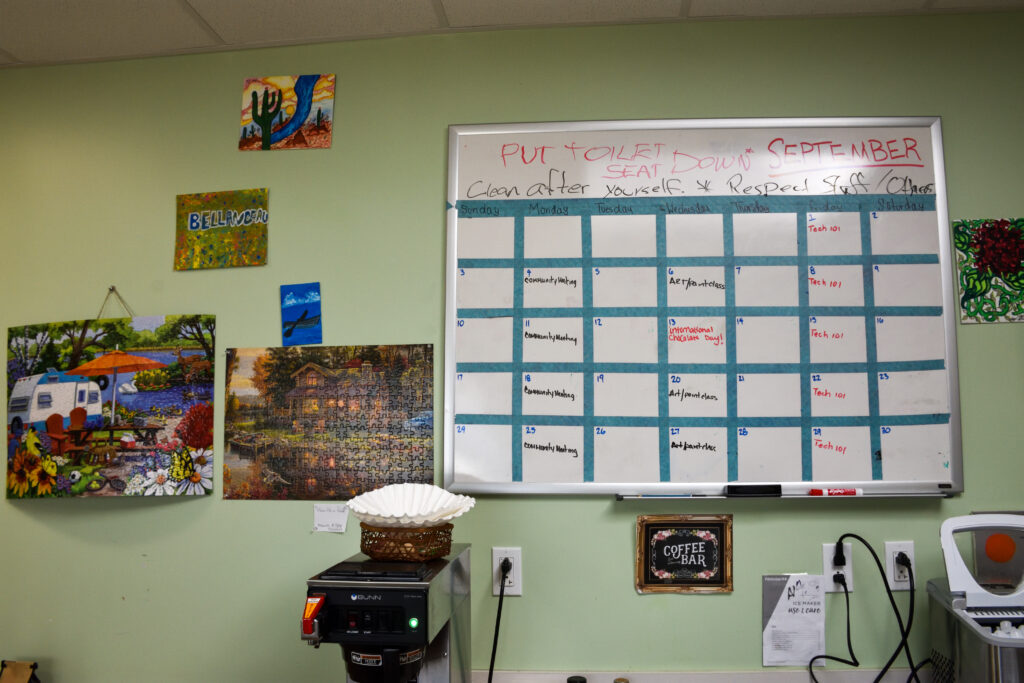

Art, books, and inspiring messages are found inside and on the walls at Maine’s first recuperative care program.
Picture this… you’ve endured a difficult surgery or have had a life-threatening illness or injury. You’re about to embark on a long recovery process, and will soon be discharged from the hospital and have nowhere to go except to a tent or a shelter. That’s where Maine’s first recuperative care program steps in to help…
Recuperative care, also known as medical respite care, is acute medical care for people with unstable housing who are too ill or frail to recover from a physical illness or injury on the street or in a shelter, but no longer require hospital-level care. Recuperative care provides short-term residential services that provide the opportunity to recover in a safe environment, while accessing basic needs, medical care, as well as social and medical case management.
A partnership between Maine Medical Center, Greater Portland Health, and Preble Street, this innovative program celebrated its second anniversary in September, marking two years of serving people with its one-of-a-kind model of care for Maine.
Photos of Greater Portland Health and Preble Street staff at the 2-year anniversary celebration for recuperative care.
This Portland-based program is the first and only medical respite care program in the state of Maine, yet studies show that medical respite care reduces hospital readmission, days in the hospital, visits to the ER, overall medical costs, and improves overall health outcomes for patients.
Most patient stays are 4-to-6 weeks, providing enough time for people to rest, recuperate, and in some cases even make a connection to permanent or supportive housing. From July of 2023 to June 2024, recuperative care served a total of 106 individuals, and of those individuals, 23 secured permanent or supportive housing. While not everyone is able to exit with housing, a 4-to-6-week stay can lay the foundation for long-term stability and overall health and well-being.
Britt LaShier is the Program Director for the recuperative care program and has worked there since the start of the program in 2022. She is deeply proud of the work they do to restore trust between the medical community and people experiencing homelessness. “Many of the people we serve can be reluctant to receive medical care and for legitimate reasons. They have had negative experiences with healthcare providers and the medical community,” says Britt.
“I’m proud of the work staff and our partners do here to build relationships with patients, using social work best practices, like trauma-informed, non-stigmatizing care.”
Read about Kabir’s journey from homelessness to the hospital to Recuperative Care to permanent and supportive housing.
LaShier sits on the National Healthcare for the Homeless Council’s RCPN Steering Committee. With their collective wealth of experience and knowledge, this committee helps direct the work of the National Institute for Medical Respite Care, which provides guidance to medical respite care programs around the country. LaShier says one of the many benefits of being on the Steering Committee is the community she has found with other providers across the U.S. “This recuperative care program is a singular and unique program in Maine. Connecting with other providers to talk about their challenges and success has been deeply rewarding, validating, and insightful.”
Ann Tucker, Greater Portland Health’s Chief Executive Officer, at the two-year anniversary party for the program, said, “I think the collaboration that happens with this program is one of the successes; all of the partners are closely aligned. And the strength of this continued relationship is thanks to the staff who keep this program going 24/7, 365 days a year; it really speaks volumes about all of the great work they are doing.”
Entering its third year, this innovative program will continue building on its foundation of positive relationships with patients and forming connections with other partners and providers from across the U.S. to learn from each other and grow together.
What’s needed most now is to expand programs like this to ensure that everyone who needs a safe environment to recover can have access to it. Recuperative care fills gaps in services that can lead to longer, better lives and reduce episodes of homelessness.
Continue Reading...
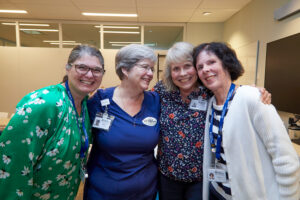
Compassionate end-of-life care for unhoused individuals
Preble Street’s work is never done in isolation. We are continuously making connections with other social service providers and nonprofits to better serve clients and the needs of the community. This month, we are highlighting a special partner of several of our programs, Hospice of Southern Maine. Hospice of Southern Maine (HSM) works to ensure
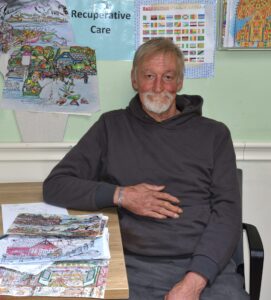
Brian’s Story
Sitting at a table at the Recuperative Care Program (RCP), Brian lays out pages of his art. “I’m working on making a children’s coloring book,” he says. Most of the pieces he has laid out are of captivating coastal scenes featuring birds, boats, and buoys. The longer you look at each page, the more you’ll
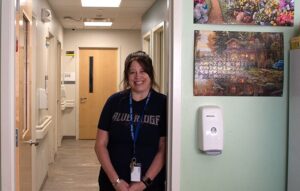
Staff Highlight: Caitlin Tobin – “I learn so much from our clients”
Preble Street staff are #CompassionInAction, and we want you to get to know them! This month we’re introducing you to Caitlin Tobin, 1st Shift Case Manager at the Recuperative Care Program. Name, title, and program: Cait Tobin, Case Manager, Recuperative Care Program (RCP) How long have you worked at Preble Street? I’ve been here for
